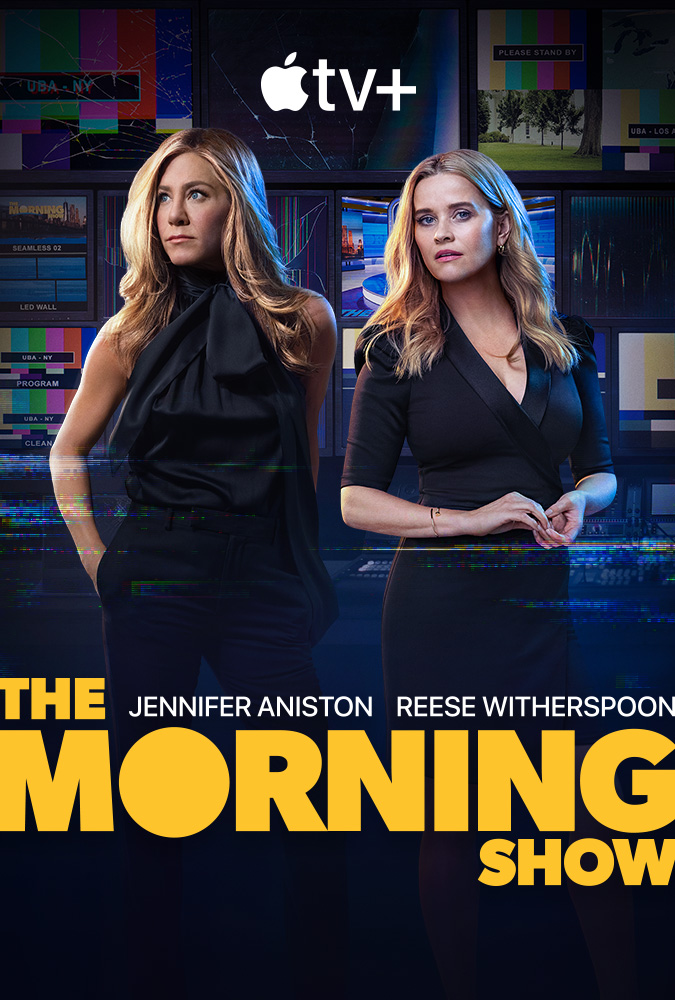Season two of “The Morning Show” released on Apple TV+ switches focus from first season. PHOTO CREDIT: rottentomatoes
The second season of “The Morning Show” on Apple TV+ is a cinematic period piece about the beginnings of the COVID-19 pandemic alongside the struggles of marginalized voices in news media.
The first season of “The Morning Show,” starring Jennifer Aniston, Reese Witherspoon, Billy Crudup and Steve Carrell, focused on the workplace sexual misconduct of Carrell’s character Mitch Kessler, co-anchor of the news show-within-the show of the same name, and its ensuing consequences for himself and those around him. However, season two focuses more on the news aspects of the show. It incorporates real-life news stories from the moment the ball dropped in Times Square right through March 2020, tackling conversations of that time.
Throughout the season, you want to scream at the characters to take COVID-19 seriously, as the audience sees people coughing or sneezing in the background of shots while the virus becomes increasingly important in the news approaching March and the World Health Organization’s declaration of a pandemic.
Daniel Henderson (Desean Terry) is the harbinger of doom, as he seems to be the only person to take the virus seriously from the get-go, traveling to Wuhan, China when news breaks of the first cases. Daniel, a Black gay journalist, goes largely unappreciated and overlooked by the fictional UBA network throughout the first and second season. This is very upsetting and frustrating to see, especially as the main characters seem to not appreciate their own lead anchor roles. However, Terry’s performance in this season is one of my favorites as the character’s personality is expanded upon from the first season with iconic clapbacks and the knowledge and owning of his self worth.
There is also a heavy emphasis on therapy this season, as Alex Levy (Aniston) comes back to her anchor position therapized after taking time off following the explosive season one finale. Because of this, she is much more tolerable this season, although she still largely remains her icy self. Her co-anchor Bradley Jackson (Witherspoon) is encouraged by her newfound romantic partner Laura Peterson (Julianna Margulies) to seek therapy as well after Bradley lashes out on several occasions due to her struggles with accepting her own sexual identity and conflict with her brother Hal (Joe Tippett).
Laura, a wonderful new addition to the show, is a mature lesbian journalist who was outed and fired early on in her career because of it. She somewhat holds Bradley’s hand while also holding her accountable for her aggressiveness and outbursts as she goes through her issues.
While the showcasing of Bradley’s struggles with her own sexuality and relationship with Laura provides a good representation of what it might be like to navigate a same-sex relationship as a morning television anchor, the show is not without its problems in this. In the finale, it seems to backtrack and completely forget about the emotional foundation these women have built together to cater to fans who ship Cory Ellison (Crudup) and Bradley with a tonedeaf scene.
Notable performances in this season include Greta Lee as new character Stella Bak, as well as those from Crudup and Witherspoon. Witherspoon deserves an Emmy Award for her performance in this season, as Bradley experienced heartache, deceit and manipulation both at work and within her family. A character who got a raw deal is Stella, who had iconic scenes and girl boss moments galore as the new president of the news division of UBA, but didn’t really get to develop her personality and backstory. Crudup’s performance as Cory was biblical as always, with his preacher-like monologues and crazed scrambling to hold the network together as CEO of UBA after the fallout of season one.
Overall, season two was more enjoyable than season one as it was more news-centered and talks about a larger variety of issues than the more narrow sexual misconduct-focused first season.

